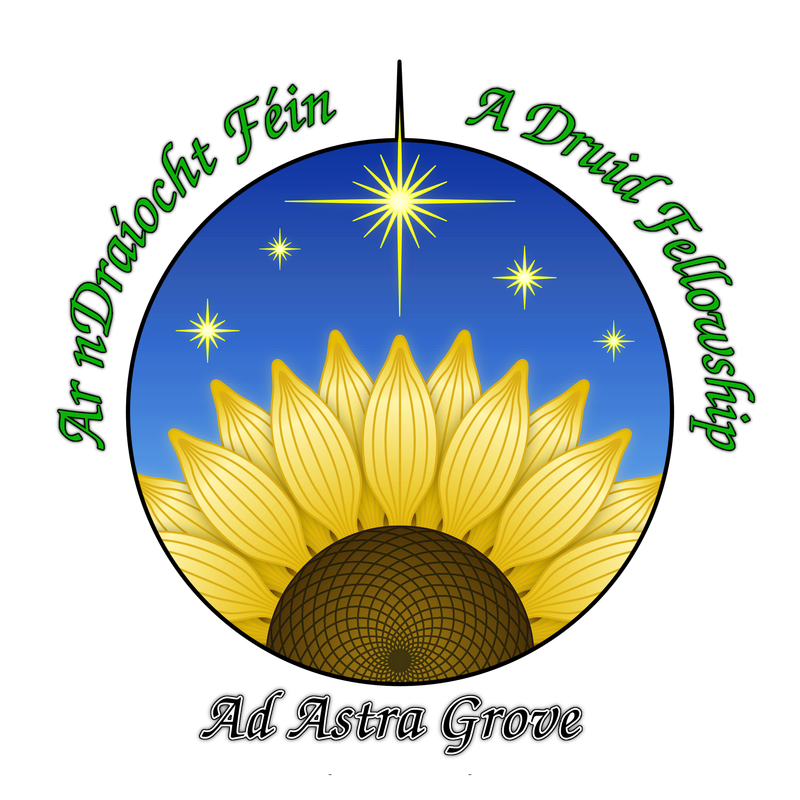Every group of people, no matter how well intentioned and organized, will eventually come across a dragon. Dragons are people who, while they don’t necessarily mean to do ill, often cause drama and stress. In a church of 200-300 people, they can cause a great deal of damage, but rarely do they kill the church. In a grove or circle of 3-30 people, they can wipe out all remains of what was once a spiritual home. My new sapling grove is very important to me, and I want it to grow healthy enough to last well after I am gone. This means that as a leader I need to be prepared for the dragons that are a guarantee at some point in the future. Thankfully, I have not met with too many dragons so far. My grove has been very fortunate on this score, but again I feel it is only a matter of time before a scaled beastie shows up.
There are no book sources that I have found that are written from a Pagan perspective. Pagan groves and circles have a very different dynamic than larger Christian churches, but some of the same techniques for dragon taming can apply. For this reason, I have been investing in several books that describe how best to deal with, and maybe even tame a dragon in a manner that will not burn the congregation (even if a few singes may occur). The first step is in identifying what type of beastie we are dealing with.
I am going to list some of the types of scaly creatures there are, but I am still in the process of researching how best to deal with them in a healthy manner. I am afraid that for this reason I am not really able to give much advice on how to handle them. Not all people who exhibit the traits of a dragon are a real beastie. Nor are all the dragons exclusively in the congregation. They can be leaders as well. The real dragons burn hot and cause fires that are hard to ignore. It is often by the amount of damage that is occurring that we can truly identify a beastie.
The first book that I have read on this subject, and where I get the term dragon from, is a book called, “Well-Intentioned Dragons,” by Marshall Shelley. This book provides an excellent description of the various types of dragons that tend to show up in groups, no matter what the size.
First, we have “the bird dog.” These are the people who scout out issues that are probably not really issues that need attention. They like to scout out the gossip and then point the leader to the individuals that they find offensive. My mom used to call ‘em busy bodies, but bird dog sounds much nicer. These are people who really do feel that they are doing the right thing and helping out. They tend to couch what they are doing in spiritual terms.
“These people like to give the impression they have more spiritual perception than anyone else.” (p.38)
The Prussian General von Moltke once divided his officer core into categories: 1) Mentally dull and physically lazy. 2) Mentally bright and physically energetic. 3) Mentally dull and physically energetic, and 4) bright and lazy (Gratzon, p.46). The first group he viewed as harmless. The third group he dismissed out right, because they tend to be very dangerous people. The second group he sequestered to smaller leadership positions, because these are the types that tend to micro manage. Bird dogs are most likely to be in this second type. Bird dogs tend to do little real harm to the group, especially if given other tasks to distract them from what others are doing.
Next, we have “the wet blanket.” These are the people who find so much fault in any idea or project that the group gets bogged down to the point of motionlessness. They sap strength and energy to the point that a small group is often disbanded. The wet blankets are easier to loose in larger groups and can be kept in check by numbers, but very few Pagan groups are lucky enough to have those types of numbers. This is a dragon I am still trying to figure out how to deal with in an affective manner in a small group setting. Thankfully, I have yet to meet one in our grove. Any ideas of how you have dealt with them in the past left in comments would be very helpful.
On the opposite side of the wet blanket we have the entrepreneur. This is the person who uses the group as the focus for business adventures. They will use the phone lists to try to sell their latest product. These are much less destructive in a small group than the wet blanket. They can be irritating, but rules put in place that state explicitly what phone lists and ritual get togethers are really for, help to keep this type of person in check.
In General von Moltke’s third category we often find Captain Bluster . This is the type who knows it all and how it should be done. They wont hear the other options and often steam roll the opposition. If you don’t agree whole heartedly with them, then you are an enemy that needs dealing with. They also seem to enjoy watching the fires that they start. This is one dragon I have felt the heat from first hand, and it was not fun. The best advice I can give from my experience is do all in your power to be sure that the Captain has no power or authority in the group. How to deal with one who already has such a position is another issue I am trying to figure out how best to deal with. Thoughts are always welcome in comments {{{HINTHINT}}}
Also lurking in the dark woods are the sniper and the bookkeeper. The sniper talks smack about everyone else, while the bookkeeper will record every little transgression perceived to use for later ammunition. These two are often shadowy figures that are often hard to spot in the process of starting a fire. I am getting the impression from my readings that these two are best dealt with in open check in type meetings. These type of meeting require everyone to be very open and trusting. Ground rules for how people are allowed to speak can also help. For example, the use of “I” language exclusively would have to be a requirement (“I feel hurt that such and such was said about me”, instead of “when you said blah”).
Dragons are unfortunately a part of group life. They can be very hard to tame, but can often be turned into powerful allies and members. How have you dealt with them?
Sources:
Gratzon, F. (2003). The lazy way to success. Fairfield, Iowa: Soma Press
Shelley, M. (1994). Well-intentioned Dragons: Ministering to problem people in the church. Minnesota: Bethany house publishers



 RSS Feed
RSS Feed
